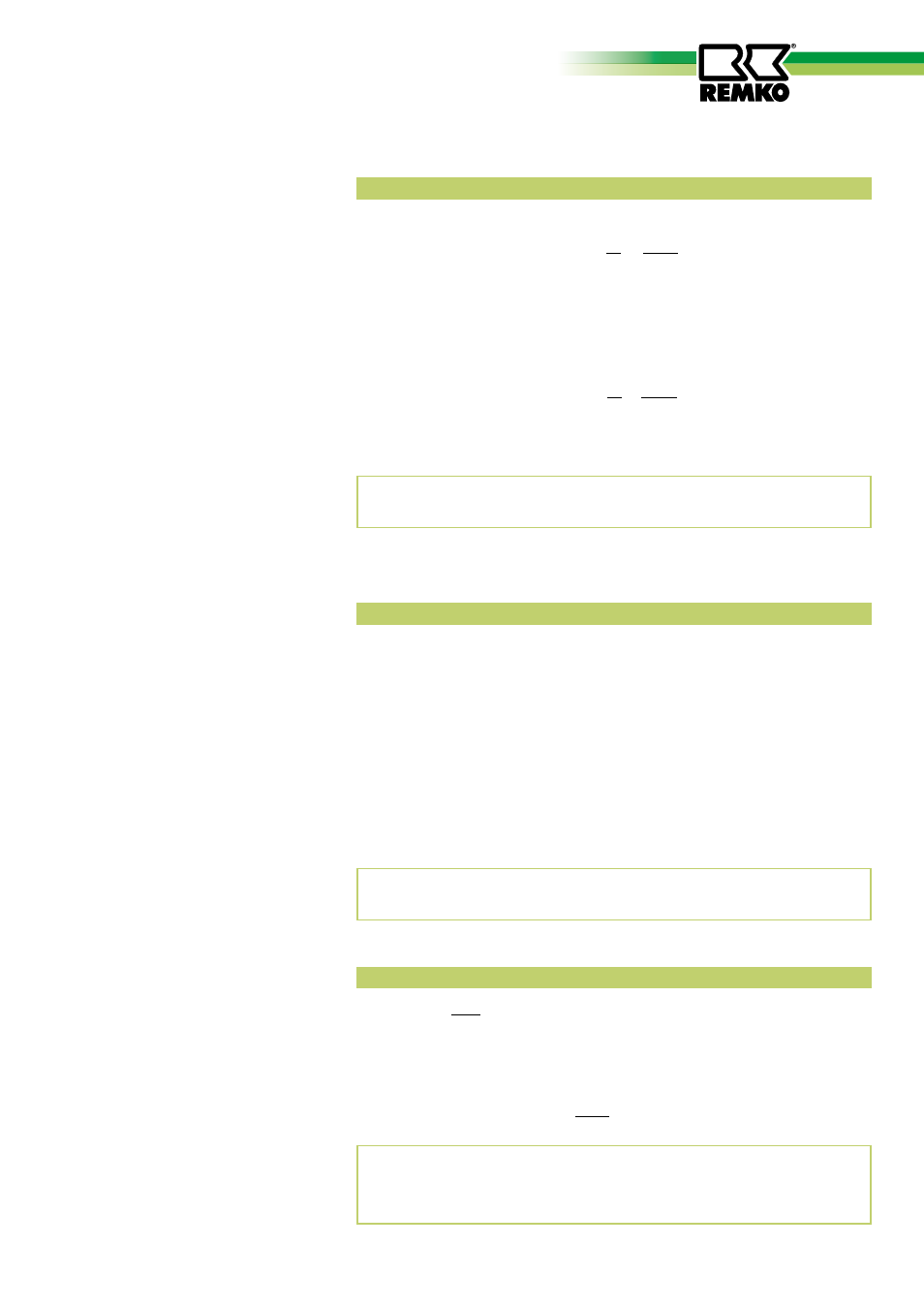Calculation example and explanation – REMKO PWW Series User Manual
Page 31

31
The heating medium volume V
W
is calculated from:
V
W
= 860 x (litre/h)
∆t
W
= 90 – 70 = 20 °C
Q
L
= 37.6 (see solution under 2.))
This results in: V
W
= 860 x
= 1620 l/h
V
L
=
2400
V 4300
Calculation example and explanation
We reserve the right to make changes to dimensions and design in the interest of technical advances.
In the ratio V
L
to air
volume V (ratings table value), the
heat output factor can be determi-
ned from the “heat output factor
correction” f
Q
diagram.
The heat output from the ratings
table multiplied by the factor f
Q
results in the effective heat output
Q
L
(kW).
From the ratio V
L
to air volume V
(ratings table value), the air hea-
ting factor can be determined.
The air heating from the ratings
table (t
L2
- t
L1
) multiplied by the
air heating factor f
L
results in the
effective air heating.
For the calculation example, this results in:
Higher speed:
Air volume ratio
=
Heat output correction factor
f
Q
= 0.75
Effective heat output
Q
L
= 50.1 x 0.75 = 37.6 kW
Lower speed:
Air volume ratio
=
Heat output correction factor
f
Q
= 0,67
Effective heat output
Q
L
= 42.7 x 0.67 = 28.6 kW
Solution:
Heat output
Q
L
= 37.6/28.6 kW
For the calculation example, this results in:
Higher speed:
Air volume ratio
0.63 (see above)
Air heating factor
f
L
= 1.20
Effective air heating
∆t
L
= 28°C x 1.20 = 33.6°C [34°C]
Air outlet temperature
t
L2
= 34 + 15 = 49°C
Lower speed:
Air volume ratio
0.56 (see above)
Air heating factor
f
L
= 1.25
Effective air heating
∆t
L
= 30°C x 1.25 = 37.5°C [37°C]
Air outlet temperature
t
L2
= 37 + 15 = 52°C
Solution:
Air outlet temperature
t
L2
= 49/52°C
4. Heating medium resistance
V
L
3400
V 5400
= 0.63
= 0.56
2. Heat output Q
L
(kW)
3. Air outlet temperature t
L2
(°C)
For the calculation example, given from the diagram (see Page 31) is
the heating medium resistance for the unit type 80-3:
Dp
W
= 2.8 kPa
37.6
20
Q
L
∆t
W
